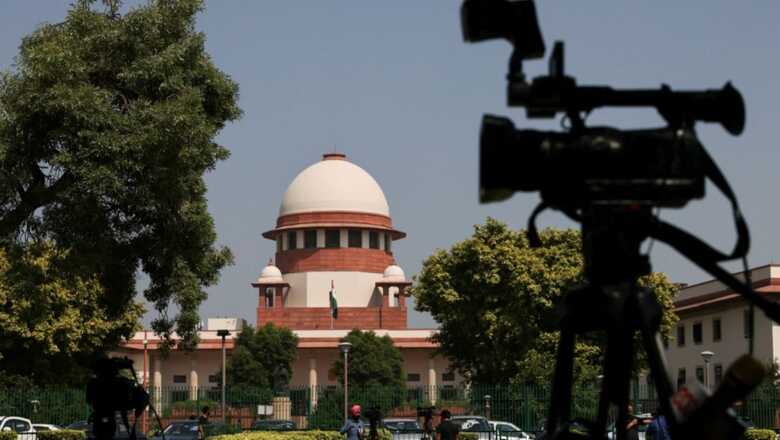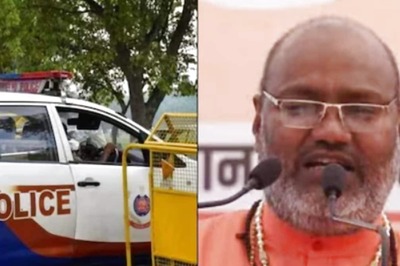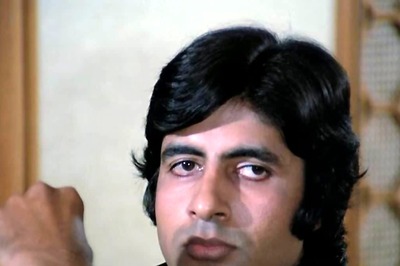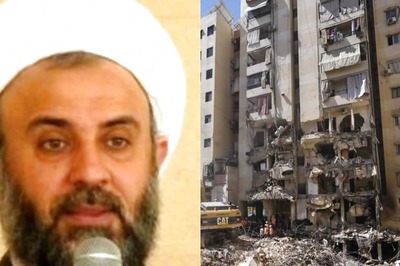
views
The future of Article 370 hangs by a thread. Three years after its repealing — or, to put it more accurately, dilution — its constitutional validity has been challenged by a slew of petitions in the Supreme Court. Hearings to seal its future will commence daily from August 2.
But first things first. How many of us are even aware that July 27 was the last date to file petitions in the Supreme Court pertaining to the Jammu and Kashmir (Reorganisation) Act of 2019. Better known as the presidential order of August 5, 2019, abrogating Article 370 of the Indian Constitution, it was this Act that bifurcated the erstwhile state into the Union Territories of Jammu and Kashmir, and Ladakh. A Constitution Bench comprising the Chief Justice of India (CJI), DY Chandrachud, and Justices Sanjay Kishan Kaul, Sanjiv Khanna, BR Gavai and Surya Kant will decide its fate.
What is more, how many of even our well-informed commentariat and even more vocal media warriors know that there are at least 23 petitions challenging the government’s order to annul Article 370. Those filing include former senior civil servants, members of our armed forces, lawyers, NGO actors, Kashmiri politicos, and activists. The “right wing” dismissal of some of them as the “usual suspects,” the well-organised “Left-Liberal” cabal, or even more pejoratively, as the “Khan Market gang” would be a grave tactical error.
Why do I say so? Because while some two-dozen petitions have been filed challenging the government’s action on 370, how many, one might ask, have been filed in support of the government? Only three. Of these, one was filed by the government as late as on July 24. In that affidavit, the Central government claimed that its decision to revoke the “special status” of J&K ushered in an “unprecedented era development, progress, security and stability to the region.”
The Centre also asserted that since the last three years, the “earlier practice of daily hartals, strikes, stone pelting and bandhs are a thing of the past now”. Life in J&K has returned to “normalcy after over three decades of turmoil”. For instance, a “duly elected 3-tier Panchayati Raj System in Jammu and Kashmir” has been set up. Furthermore, “law and order events” have come down by 97.2% and “terrorist initiated instances” by 45.2% from 2019 to 2022. Other benefits have been listed in the Centre’s affidavit.
However, the Centre’s plea will not be considered. Why? The Bench ruled, “We will hear only on Constitutional issues. The Centre’s new affidavit will have no effect on the matter.”
Therefore, the writing on the wall is clear. The supporters of 2019 J&K reorganisation act have been legally laggard in shoring it up in the Supreme Court, where the real battle for its validity will be waged. Over-active, one might even say over-effective in both mainstream and social media, the team from the “right side” has been found to be wanting when it comes to making their presence felt in the legal fight to confirm the 370 modification.
Who filed the only two other petitions in support of the government’s intervention? Both petitioners represent the Kashmiri Pandit (KP) community — Youth 4 Panun Kashmir and social activist Virinder Kaul, supported by Global Kashmiri Pandit Diaspora (GKPD). Both applications have been filed through advocate Siddharth Praveen Acharya. I have read the latter of these affidavits, the 51-page plea filed by Kaul. I will return to its contents later, but what needs to be emphasised at the outset is that the victims of Muslim militancy in the Valley are, once again, in the forefront to fight for the Indian state.
This despite the fact that it is the KPs who have been picked, one by one, for slaughter in Kashmir — those few of them who still remain. Notwithstanding all the good that direct central rule has done to Kashmir in the last five years, one of its great failings has been its inability to protect the most vulnerable of the minority Hindu population in the Union Territory — the KPs and migrant workers.
GKPD, for those who don’t know, was also instrumental in providing the material and logistical support to the brave makers of The Kashmir Files, the talented husband-wife duo of Vivek Agnihotri and Pallavi Joshi. It is they who succeeded in bringing the tragedy and genocide of the KPs, decades after, to the attention not only of Indians, but also of an influential international community, spread across five continents.
The battle on the ground for Kashmir continues, with terrorists still striking at innocents. But perhaps a bigger battle is to be fought in a completely different domain. This is not a military, strategic, or political clash but a legal and constitutional one. Here, the narrative war, which the government and the ruling party seem to have won, will have little or no bearing. Instead, it will be the intricacies of constitutional law.
The gravity of the situation is such that the government simply cannot afford to lose this fight. Not only for its own sake or its political future, but for the sake of India itself. One must hope that abrogating 370 and 35A, the Centre would have thought through all possible challenges to it and is fairly confident that it is a fait accompli that cannot be reversed.
(To be continued)
The writer is an author, columnist, and professor at Jawaharlal Nehru University. Views expressed in the above piece are personal and solely that of the author. They do not necessarily reflect News18’s views.



















Comments
0 comment